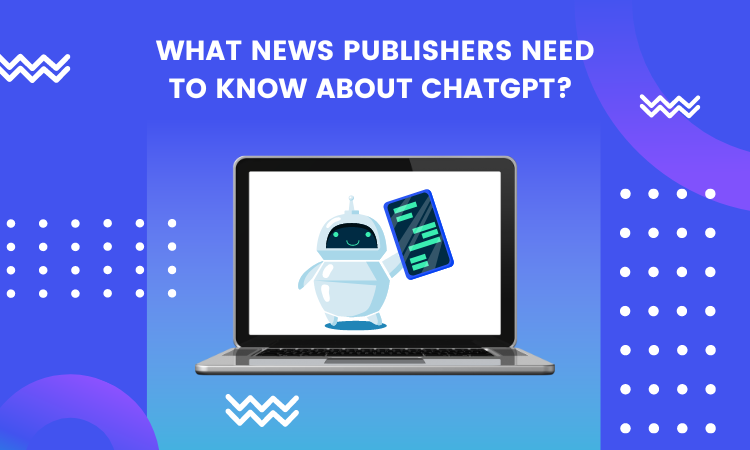ChatGPT has been a buzzword lately, especially in the IT sector, which relies upon coding or programming. However, if you take a close view, it has the potential to transform the publishing industry as well due to its dependence on writing.
When half of the world is worshipping this genius AI tool, it has emerged as a threat to many professionals. So, is ChatGPT a boon or a bane? And how is it going to affect the publishers? To find out the answer, continue reading!
What is ChatGPT?
ChatGPT is a chatbot developed by OpenAI. It was launched in November 2022. This chatbot is built on OpenAI’s GPT-3 family of large language models trained using Reinforcement Learning from Human Feedback (RLHF).
It uses a dialogue format, which means it may appear as if you are talking to an intelligent tool that has the answer for almost everything.
How will ChatGPT impact the publishing sector?
ChatGPT undoubtedly has tremendous potential to drive the next revolution in the publishing sector. Automating a vast chunk of the grunt work of journalism, especially data collection, can save time and money. There are many things that chatGPT can do for publishers. Let’s take a closer look:
1. Content creation
It can generate news articles on multiple topics. All publishers need to do is provide a set of keywords or topics, and ChatGPT will generate an article based on those inputs. This can be useful for news publishers of all sizes, especially smaller ones because they are often short of budget. It can produce content quickly and efficiently.
2. Content curation
ChatGPT can scan through a vast number of news articles and identify the most relevant ones based on a given set of keywords or topics. This can save publishers time and effort in curating the best news articles for their readers.
3. Shift to premium content
Publishers can efficiently leverage the advantage of this futuristic tool. It is because ChatGPT can write less complex stories such as finance and sports. This will save the time of writers and editors who can focus more on creating research-based and complex stories. This will prove to be a boon for investigative journalism because it requires high dedication and time.
With ChatGPT, you can also publish time-sensitive stories quickly. So, this is definitely going to open new avenues for publishers.
4. Idea generation
Sometimes, writers run out of ideas or just wonder how to start. This is where ChatGPT can help. All you have to do is put in your requirements in ChatGPT, and it will give you not just one but multiple suggestions. It is because you can always regenerate responses in this tool.
5. Reduce cost
This sounds quite obvious. By automating certain aspects of content creation, you can reduce publishing costs. ChatGPT is capable of creating less complex content. Although you may need to proofread it to match your stylesheet, it can generate the content within minutes, saving you hefty time.
ChatGPT can help publishers in a number of ways by allowing them to create, curate and personalize the content. By leveraging the power of artificial intelligence, publishers can enhance their productivity and user experience.
If you want to automate your publishing, get in touch with us today. We offer an outstanding mobile solution to streamline your publishing and reduce associated costs. Call now!


